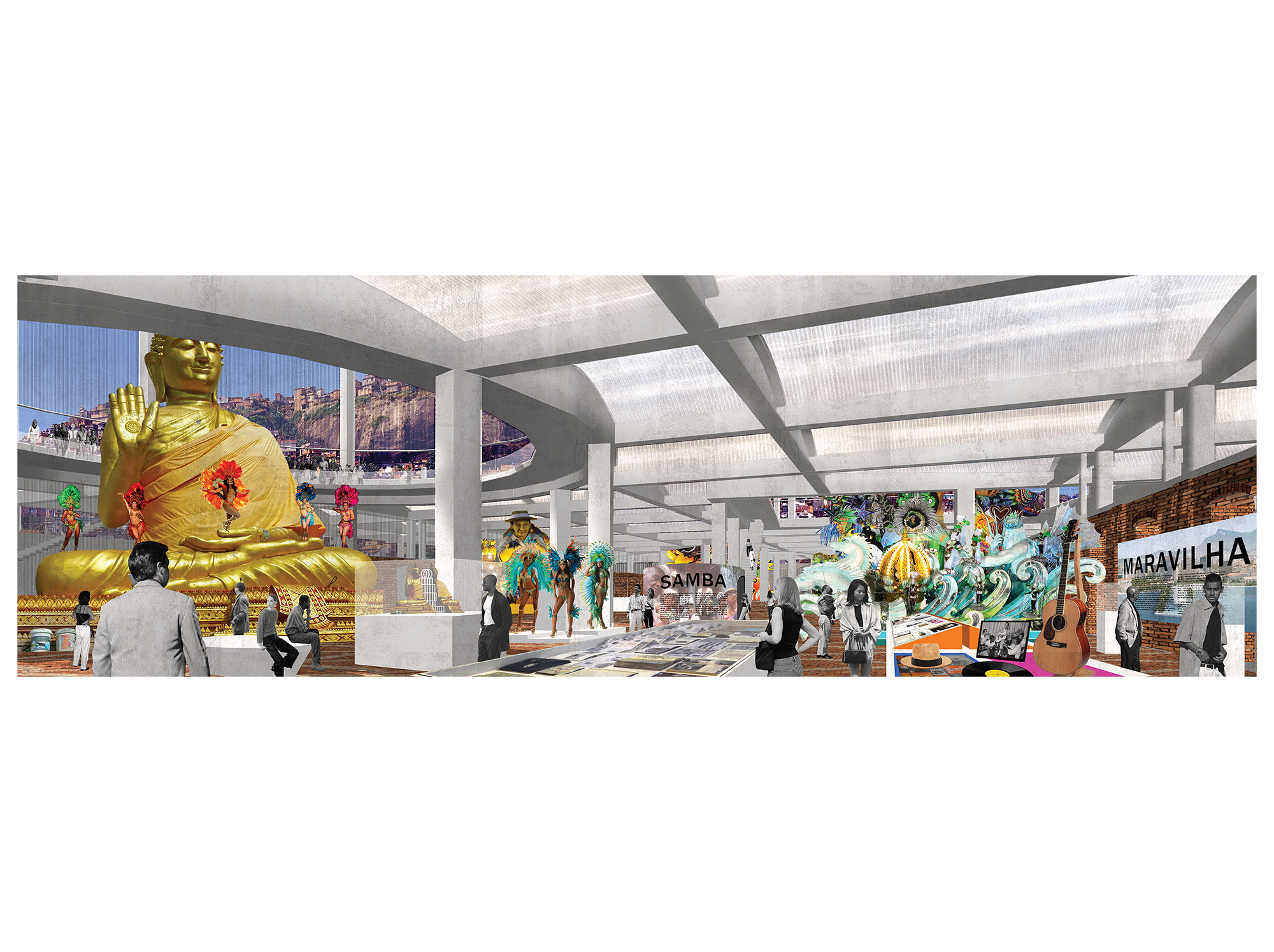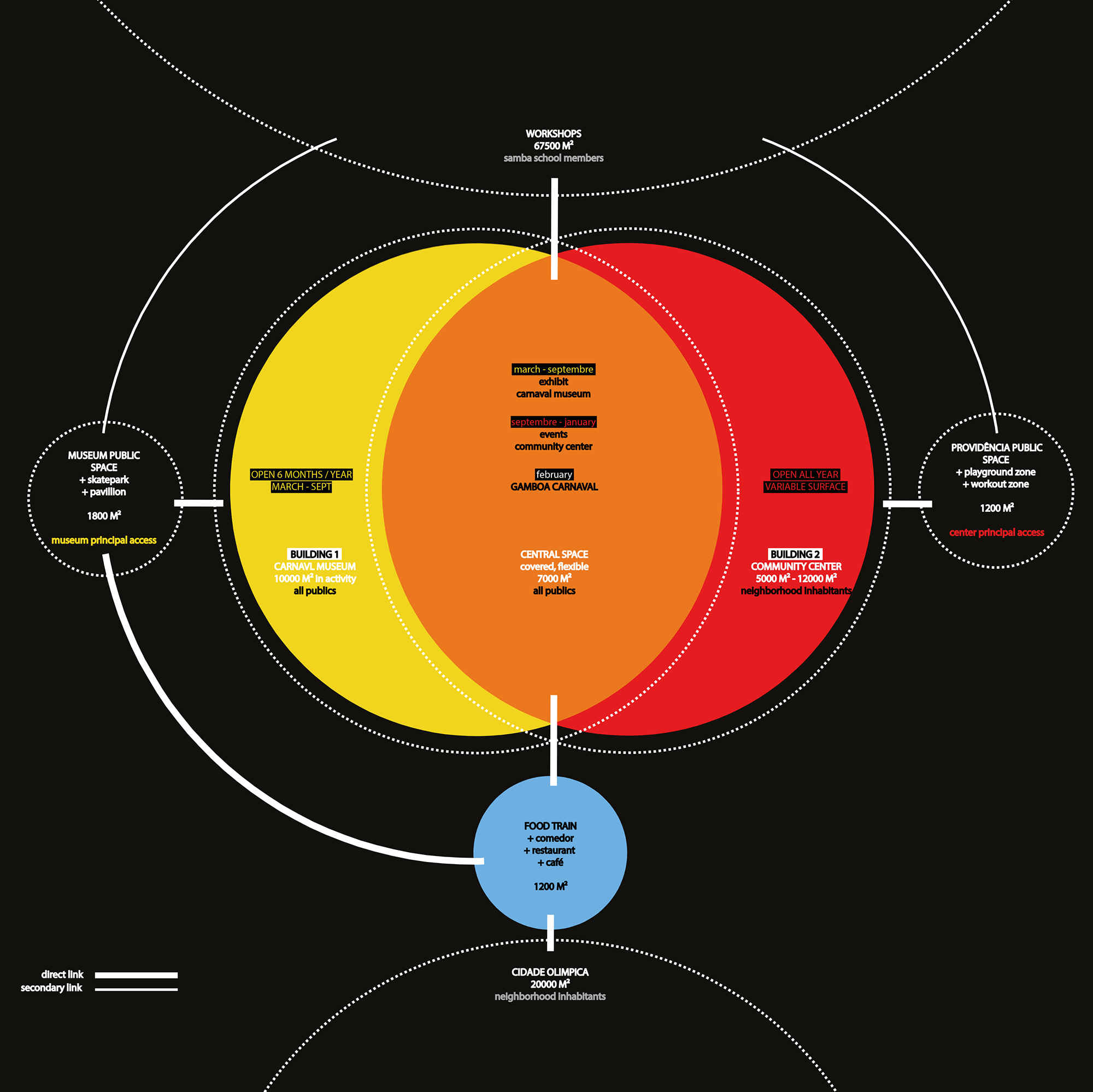CITY OF SAMBA
Architecture Thesis
Rio de Janeiro
Brazil


























For my architecture thesis, I designed a Carnaval Museum for Rio de Janeiro. This research project was accompanied by a memoir comparing the politics, and relationships between Rio (Brazil), Medellin (Colombia) and their illegal settlements, favelas and comunas, in history.
This project took 1.5 years of work, including a few trips to Rio, and a collaboration with the Beija-Flor Samba School. It was a very complex project, starting from the sad, yet realistic point of view inherited from my memoir, that the only way to produce a cultural space for a favela in Brazil was to use tourism as an excuse. Sadly, most important construction projects that survive long enough to be built, in the history of the country, seem to gravitate around tourism. That’s just the way it is.
So I created a surprisingly realistic theoretical network of ideas, using a Carnaval Museum as an excuse to give a cultural space for the country’s first favela, Providência, inspired by the Centquatre cultural center in Paris, and the social mission Samba Schools actually hold in communities - education of the youth through music and dance.
This project took 1.5 years of work, including a few trips to Rio, and a collaboration with the Beija-Flor Samba School. It was a very complex project, starting from the sad, yet realistic point of view inherited from my memoir, that the only way to produce a cultural space for a favela in Brazil was to use tourism as an excuse. Sadly, most important construction projects that survive long enough to be built, in the history of the country, seem to gravitate around tourism. That’s just the way it is.
So I created a surprisingly realistic theoretical network of ideas, using a Carnaval Museum as an excuse to give a cultural space for the country’s first favela, Providência, inspired by the Centquatre cultural center in Paris, and the social mission Samba Schools actually hold in communities - education of the youth through music and dance.
